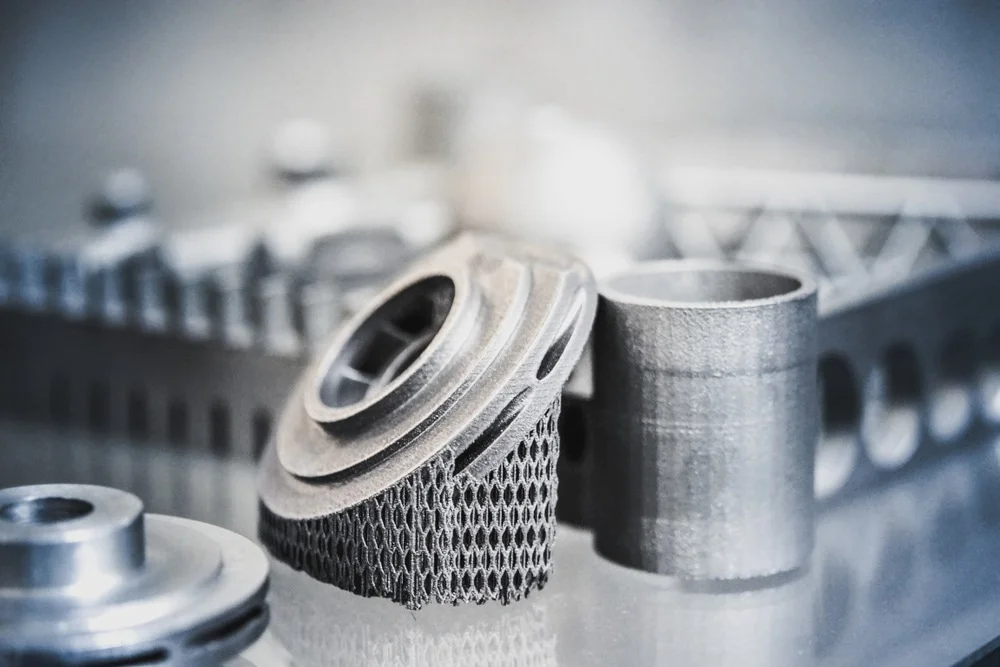ISO 1099 High-Cycle Fatigue Testing at Elevated Temperatures
The ISO 1099 standard provides a robust framework for assessing the high-cycle fatigue properties of materials under conditions that mimic real-world operating environments. This service is particularly critical in sectors where components are exposed to elevated temperatures and cyclic loading, such as aerospace, automotive, and power generation industries.
High-cycle fatigue refers to the phenomenon where material failure occurs due to repeated stress cycles below its yield strength over extended periods. At elevated temperatures, materials undergo a range of physical changes that can significantly alter their mechanical properties. This service ensures that critical components can withstand these stresses without compromising safety or performance.
The testing process involves subjecting specimens to cyclic loading at specified temperature and strain rates. The specimen is typically a small part of the component under test, which undergoes repeated stress cycles until failure. This approach allows for a detailed examination of the material's behavior during fatigue, providing insights into its durability and reliability.
The testing setup includes specialized equipment that can maintain precise temperature control and apply cyclic loading to the specimen. The process is highly automated, ensuring consistent results across multiple tests. Once the test is complete, the data is analyzed using advanced software tools to generate detailed reports on the material's fatigue properties.
Understanding the fatigue behavior of materials at elevated temperatures is essential for predicting their service life and ensuring safety in high-stress applications. This knowledge helps engineers design components that can withstand harsh operating conditions without failure.
The ISO 1099 standard ensures consistency and accuracy in testing, making it a valuable tool for compliance officers and quality managers. For R&D engineers, this service provides critical data to refine designs and improve product performance. Procurement teams benefit from the assurance that materials meet stringent fatigue requirements, ensuring reliability across supply chains.
The testing process begins with careful specimen preparation, which involves selecting a representative sample of the material to be tested. The specimen is then loaded into the testing machine, where it undergoes cyclic loading at controlled temperature and strain rates. The data collected during the test is analyzed using statistical methods to determine the fatigue life of the material.
The results of ISO 1099 tests are crucial for various stakeholders. Compliance officers use these results to ensure that products meet regulatory requirements, while R&D engineers rely on them to optimize designs and improve product performance. Procurement teams benefit from knowing that materials will perform reliably in high-stress environments.
For a deeper understanding of the testing process, consider the following table summarizing key parameters:
| Parameter | Description |
|---|---|
| Temperature Range | The range of temperatures at which the test is conducted, typically between 20°C and 650°C. |
| Cyclic Loading Frequency | The frequency of stress cycles applied to the specimen, usually measured in Hertz (Hz). |
| Strain Rate | The rate at which strain is applied to the specimen during testing. |
| Specimen Type | The type of material and geometry used for the test, such as a cylindrical or flat sample. |
Applied Standards
The ISO 1099 standard is widely recognized for its comprehensive approach to high-cycle fatigue testing at elevated temperatures. This section outlines the key parameters and standards that govern this service:
| Standard | Description |
|---|---|
| ISO 1099:2015 | The latest version of the ISO standard, providing detailed guidelines for high-cycle fatigue testing. |
| ASTM E139-18 | An American Society for Testing and Materials (ASTM) standard that complements ISO 1099 by offering additional insights into material behavior under cyclic loading. |
| EN 10275:2016 | A European Norm (EN) standard that aligns with ISO 1099, ensuring compatibility and consistency across different regions. |
The standards listed above provide a solid foundation for our testing procedures. They ensure that the results are reliable and repeatable, meeting the highest quality standards in the industry.
Eurolab Advantages
At Eurolab, we pride ourselves on offering a comprehensive suite of testing services tailored to meet the unique needs of our clients. Our ISO 1099 high-cycle fatigue testing at elevated temperatures service is no exception. Here are some of the key advantages:
We employ state-of-the-art equipment and highly skilled technicians, ensuring that each test is conducted with precision and accuracy. Our facilities are equipped to handle a wide range of materials and specimen types, making us versatile in our testing capabilities.
Our team of experts has extensive experience in the aerospace, automotive, and power generation sectors, allowing us to provide tailored solutions for your specific needs. We offer fast turnaround times and competitive pricing, ensuring that you get the results you need without compromising on quality.
We are committed to maintaining high standards of safety and ethics in all our operations. Our clients can rest assured that their materials will be tested under the most stringent conditions, ensuring reliability and durability in real-world applications.
Competitive Advantage and Market Impact
The ISO 1099 high-cycle fatigue testing at elevated temperatures service offers significant competitive advantages to our clients. By providing accurate and reliable test results, we help ensure that products meet the highest quality standards, thereby enhancing market reputation and customer satisfaction.
Our service plays a crucial role in reducing product development time and costs by identifying potential issues early in the design process. This allows for quicker iterations and improvements, ultimately leading to more efficient production processes.
The ability to predict material behavior under extreme conditions provides valuable insights into the durability and reliability of products. This knowledge is invaluable for companies looking to differentiate themselves through superior product performance and safety standards.





